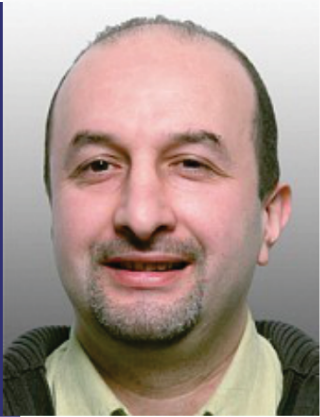
Seminars
May 07, 2019: Prof. Mouloud Adel (Aix-Marseille Univ., France), Some Aspects of Computer-aided Diagnosis Applied on Medical Images
Medical diagnosis is a very important medical daily task. Doctors need computer-aided tools to help them in analyzing a huge amount of data. Image processing and machine learning can take into account the variability of these data ad provide doctors with efficient and automatic tools. This talk will focus on different approaches that have been successfully applied on optical retinal images to segment the retinal vascular tree, breast X-ray images to segment anatomical regions of interest on mammographic images and Positron Emitting Tomography brain images for Alzheimer’s disease classification.
Speaker: Prof. Mouloud Adel, Aix-Marseille Univ.
Time: 15:30, Tuesday, May 07, 2019
Venue: E3-212, 144 Xuan Thuy, Cau Giay, Hanoi

Mouloud Adel received his Engineering degree in electrical engineering from the Ecole Nationale Supérieure d’Electricité et de Mécanique (ENSEM) of Nancy, France, as well as his Master’s degree in electronic and feedback control systems in 1990. He obtained his PhD degree from the Institut National Polytechnique de Lorraine (INPL) of Nancy in 1994 in image processing. He has been a Professor Assistant at the Institut Universitaire de Technologie de Marseille since 1994. In 2008 he obtained his HDR from Aix-Marseille University and became an Associate Professor. Since September 2014 he is a full Professor at Aix-Marseille University, France, in Computer Science and Electrical Engineering. He is a member of the Multidimensional Signal Group of Institut Fresnel UMR-CNRS 7249. His research areas concern signal and image processing applied to biomedical and industrial images. He has published more than 50 papers including International journals and conferences articles. He has been involved in many international research programs (Germany, Algeria, United Kingdom). He is a member of the editorial board of Journal of Biomedical Engineering and Informatics. He has been an invited speaker at Polytechnic Institute of Technology of Algiers (Algeria) and at Parma University (Italy), and chaired a special session “Statistical Image Analysis for computer-aided detection and diagnosis on Medical and Biological Images” in IPTA 2014 (IEEE International Conference on Image Processing Theory and Application, Paris). He is the head of the Signal and Image Processing Master of Aix-Marseille University.
